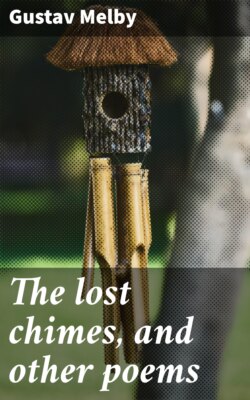Читать книгу The lost chimes, and other poems - Gustav Melby - Страница 7
На сайте Литреса книга снята с продажи.
XI
ОглавлениеTable of Contents
To France he first of all did make his way,—
Enduring hardship on the boistrous sea,
And dangers on the shores of sullen foes,
But since to hearts of purpose strong no woes
Insufferable seem, thus agony,
Of any kind, could not his zeal allay.
He reached the wondrous city of the Seine,
The metropole of Europe’s art and modes,
Where ever dazzling Show and Pleasure sweet,
Like youths in Daphne’s grove alaughing meet,
Where Grecian deities have their abodes,
And genius hath reared a matchless fane.[A]
[A] The Louvre.
Where stands the armless Venus, unto whom
Poor Heine cried for help, but none received,
Since pagan culture is quite impotent
To save a soul in doubt and error spent,
Though for poor Heine none needs to be grieved,
Whose glory mingles with the maid of foam.
Great Paris, scene of most momentous deeds,
Far reaching consequences to the race;
Where monarchs died like vilest criminals,
While Anarchy did sing her bacchanals,
And trampled in the mire, what once did grace,
The highest places and most hallowed creeds.
Where great Napoleon, a demigod,
Ascended to the pinnacle of fame
And pow’r most dread, who made the monarchs quail
Before his genius, until a wail
Of anguish rose mid ruin and the shame
Of empires, struck by heav’n’s avenging rod.
But even his greatness could not have its sway
O’er equilibriums by ages fixed;
His life was like the wierd and dazzling light
Of some stray star in its erratic flight,
Or like the image where the metals mixed,
The gold and silver with ignoble clay.
The head of gold, the feet of clay, and so
The little stone of Fate the giant felled,
The star erratic into exile sent,
Its lustre in ignominy misspent,
Still it had closed an age—whose doom was spelled,
The slave is free, the tyrant, too, must go.
But this was not the France Sordino knew,
Long time before the Corsican he lived,
Ere France had lost her faith in monks and nuns,
While chiming bells were more than roaring guns,
And in their potency the land believed,
Rejoicing that their fathers’ faith was true.
His life fell in the days of Charles the Great,
When wars were pleasant pastime for the kings,
Who fought for many reasons quite terrestrial,
But sometimes, as they thought, for things celestial,
And nothing like the latter valor brings,
Inspired by bigotry and hellish hate.
When France was warring for her very life,
And Guise, the mighty lion, held at bay,
When Florence beat her foe at Marciano,
And poor Sordino lost his sweet campana,
’Twas in that age he lived and made his way
To Paris, weary from the worldly strife.
He traveled like a scholar, incognito,
And sought the company of learned men,
Disputing with them in the classic lore;
This helped him churchly places to explore,
Where might have been, perchance, a robber’s den,
Since that of old has ever had a ditto.
“My Father’s house ye made a den of thieves,”
Said Christ to priests who wrought for Him a cross,
But afterwards, full often, in His name
The priesthood has been guilty of the same:
What was a sister nation’s grievous loss,
They proudly stored in dusky sacristies.
Such was the plunder of the noble art,
Which Philip from the Netherlands did take,
Such, too, the treasures which Napoleon
With ruthless warfare from the nations won;
Thus ever, where the priest his sign doth make
Upon the sin which pierced the sacred heart.
Such guilt may, even in Sordino’s times,
Have rested upon some Parisian church,
Or abbey in its strange seclusiveness,
But everywhere he found but weariness,
Resulting from his all persistent search,
And nowhere did he see nor hear his chimes.
